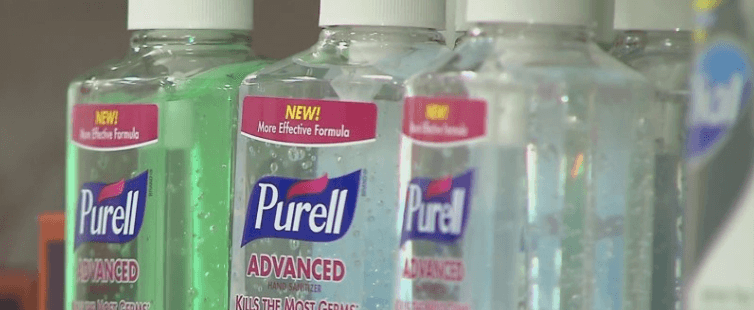
Opportunity Knocks
A year ago, Zoom and Purell had solid businesses, strong players in their respective businesses of hand sanitizers and video communications. But that was before COVID-19, which sent those categories on a wild growth ride.
Genericized brands?
Almost overnight, both brands skyrocketed, making the leap from solid businesses into the “danger zone” of becoming genericized descriptors for their entire classifications. Think Xerox, Kleenex, Styrofoam (yes, it’s a brand owned by Dupont).
They have something else in common. As far as we can tell, they’ve never licensed out their brands.
For example, Gojo Industries, the family-run company that created and owns Purell, over time turned it into a category leader. Yet the only non-sanitizer Purell products available – whether licensed or not is hard to determine – apparently are along the lines of novelty goods, facemasks and t-shirts on Redbubble.
Taking care of business
Zoom and Purell are among a handful of suddenly popular brands – whether driven by the pandemic or other market forces – that have yet to make meaningful if any forays into brand licensing. Others include Peloton, Lululemon, Truly, White Claw, Allbirds and a plethora of direct-to-consumer brands. During the past year, especially, many of them focused on meeting demand for core product, largely because they little time for anything else.
Peloton’s annual revenue for the year ended more than doubled to $1 billion, and the company forecasts another 110% gain this year. (And the success of its UK launch of a lower-end model is now pushing back U.S. plans.)
And U.S. sales of hard seltzer, a market dominated by Sam Adams Boston Brewery’s Truly and Mark Anthony Brands’ White Claw, soared 160.4% last year.
“Many companies weren’t the least bit interested [in licensing] unless it was something incredibly compelling. But for most of these companies right now there isn’t a bigger business out there than the one they are in,” says a licensing agency executive. “I think some will turn to licensing in the future because they will have more time and want to cement the gains their brands have made, because this [pandemic] won’t last forever and their mindset won’t last forever.”
Some candidates:
- Purell. The brand was well-known pre-pandemic as a staple of schools, hospitals, offices, factories and other businesses. But at the height of the COVID-19, store shelf were stripped bare of Purell and other hand sanitizers, sales of which increased seven-fold in 2020 to $1.3 billion. Consumer demand forced Gojo to open a new factory and distribution center in a matter of months rather than the decade or so it originally targeted for expansion, increasing its workforce by 20 percent.
- White Claw. The hard seltzer brand, which is sold by the maker of another brand with no brand licensing, Mike’s Hard Lemonade, launched in 2016 and has gradually expanded its line to include spiked lemonade (2020) and tea (January 2021). The brand has drawn interest on maker sites, with a “The is Guy Needs a Claw” available on Redbubble’s TeePublic and “Ain’t No Need for Laws When You Are Drinking Claws” on Fairy Season, neither of which feature the “White” in the design.
- Truly. Truly launched in 2016. But, unlike White Claw, Truly has a link to merchandise off its web site that features a collection of beanies, koozies, shorts, hoodies, sweats and button down shirts developed internally and in collaboration with illustrator Max Loeffler, artist Nikoo Bafti and others. It also partnered with Tipsy Scoop for hard seltzer-infused ice cream and sorbets last year.
- Peloton. The exercise equipment and online training company doesn’t appear to have licensed out its brand. That’s likely because demand for its exercise bikes during the pandemic outstripped supply and there have been long delays for consumer deliveries that have stretched into this year. It finished last year with 1.68 million digital subscribers, up 134% from a year earlier. Peloton has made some stabs at collabs, including working with singer Beyonce on a training video. While Peloton makes little mention of licensing during its quarterly conference calls with analysts, it posted a job in December for an associate general counsel for licensing and marketing that will manage an outside law firm handling brand licensing and trademark clearance.
- Lululemon. The athleisure supplier, whose apparel became a staple for some consumers for home office workwear, has done a limited amount of licensing in the past, including a collaboration with SoulCycle that features a range of co-branded apparel. It also has DTR with Sephora for a “Selfcare” line that includes, shampoo, deodorant and balm. Along with the products, Lululemon appointed former Nike executive Nikki Neuberger last year as its first Chief Brand Officer.

















